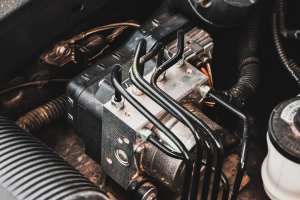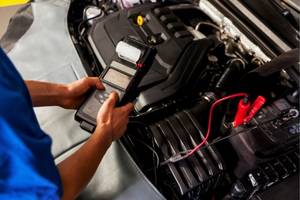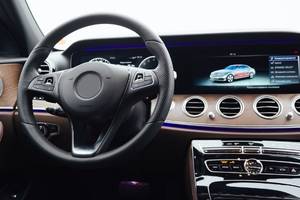Introduction
You might not know it yet, but there’s a tiny orchestra conductor under the hood of your car, consistently orchestrating a symphony of combustion, gears, and wheels. This wizard is your Powertrain Control Module (PCM). But what exactly is a PCM, and why should you care? Well, if you’ve ever wondered how your vehicle smoothly shifts gears, manages fuel consumption, or keeps emissions in check, the PCM is the unsung hero behind these important processes. This article will take you through a brief overview of the PCM, dive right into its functionality, highlight common issues, and provide some troubleshooting tips to keep your ride performing at its best.
1. Powertrain Control Module: A Brief Overview
The powertrain control module, in the simplest terms, is the brain of your vehicle. It's a computer system that keeps an eye and manages your car's engine, transmission, and sometimes other components. Here's a quick breakdown:
Engine Management: The powertrain control module controls the fuel mixture, ignition timing, and variable valve timing. It's like the kitchen manager, making sure your engine gets the right "food" at the right time.
Transmission Control: Your PCM will decide when to change gears to make sure smooth driving and optimal fuel efficiency. It's pretty much your car's gear shift whisperer.
Emission System Control: In many vehicles, the PCM also monitors and controls the emission system. It's the eco-warrior under your hood, making sure your car complies with emission standards.
Now, the powertrain control module is not an alone device. It's part of a larger system known as the on-board diagnostics (OBD) system. This system keeps tabs on the performance of your car and flags any problems ASAP. It's like your car's personal doctor—always on call and ready to diagnose.
Are you starting to see the importance of the powertrain control module? Without it, your vehicle would be like a conductor-less orchestra—chaotic. But just like any other part of your vehicle, the PCM may also experience issues. In our next section, we'll explore the common issues with powertrain control modules and how to troubleshoot them. Stay tuned!
2. Functionality of the Powertrain Control Module
Now that we have an overview of what a powertrain control module is, let's dive in deeper into how it functions. It's not magic—it's all about sensors, signals, and swift actions.
Imagine: your powertrain control module is like a maestro, and the sensors are its orchestra. The PCM relies on a network of sensors throughout your vehicle to provide it with real-time data. This data includes engine speed, temperature, and oxygen levels in the exhaust, among other things. Think of the sensors as the eyes and ears of your PCM—they keep it informed about what's happening under the hood.
Making Decisions
Once the powertrain control module receives input from the sensors, it's decision-making time. The PCM simplifies the information from the sensors and then decides the best course of action. It's like a chess player, constantly analyzing the game and deciding the next move. If the engine is running hot, the PCM might increase the cooling fan speed. If the oxygen level is too high in the exhaust, it may adjust the fuel mixture.
Outputs and Actions
After making a decision, the powertrain control module sends signals to various components to take action. It's like the director of a movie, guiding the actors to give the perfect performance. The PCM might adjust the fuel injectors, change the gear, or even limit the engine speed. It's all about keeping your vehicle running smoothly and efficiently.
It's also good to know that the PCM stores error codes when it detects a problem. These codes help diagnose problems when things go wrong. It's like your car's black box, keeping a log of any issues it encounters.
So, in short, that's the functionality of the powertrain control module. It's a cycle of receiving inputs, making decisions, and taking actions—all in a fraction of a second. Next, we'll look at some common PCM issues and how to troubleshoot them. Keep going—you're doing great!
3. Common Powertrain Control Module Issues
Alright, let's switch gears and talk about possible problems. Just like any other component of your vehicle, your powertrain control module can also encounter issues. Here are some common ones you might face.
Unexpected Gear Shifts
Ever been cruising along and suddenly your vehicle shifts gears out of the blue? Unexpected gear shifts are a common sign of a powertrain control module problem. This happens when the PCM sends incorrect signals to the transmission.
Poor Fuel Efficiency
If you're noticing that your vehicle is consuming more gas than usual, a faulty powertrain control module might be the sinner. An issue with the PCM can cause it to miscalculate the fuel-air mixture, leading to a less efficient burn and more trips to the gas station.
Check Engine Light
The popular check engine light. If your check engine light is on, it could be due to a problem with your powertrain control module. Remember those error codes we talked about? The PCM will trigger the check engine light if it detects a problem.
Engine Misfires or Stalling
Does your vehicle feel like it's coughing and whispering? Engine misfires or stalling can occur if the PCM isn't correctly regulating the fuel injectors or the ignition system.
Failed Emissions Test
If your vehicle fails an emissions test, it can be a sign that your powertrain control module isn't functioning properly. A faulty PCM might not manage the exhaust system correctly, leading to higher emissions.
These are just a few of the common issues linked with a problematic PCM. But don't worry—we'll get to the troubleshooting tips in the next section. Onward!
4. Troubleshooting Tips for Powertrain Control Module Problems
Now that you're familiar with common powertrain control module problems, let's move on to how you can troubleshoot these issues. We've got your back!
Consult Your Vehicle's Manual
First things first: grab your manual. It can provide you with particular information about your powertrain control module and might include some useful troubleshooting tips. Each vehicle is unique, so it's always a good idea to check your manual first.
Use a Diagnostic Scanner
Next up, consider using a diagnostic scanner. This can be a real game-changer. It works by reading the error codes your powertrain control module generates when there's a problem. Decoding these codes can help you pinpoint exactly what's going wrong.
Check for Loose Connections
Loose connections can cause plenty of headaches when it comes to the powertrain control module. So, get under the hood and make sure all the connectors are tight and secure.
Inspect for Damaged Wiring
While you're at it, take a good look at the wiring. If you see any damaged wires, they could be the source of your powertrain control module problems.
Consider a Professional Mechanic
If all else fails, don't be shy about seeking professional help. Sometimes, the issues with the powertrain control module can be complicated and require a professional's touch.
Remember, a well-functioning powertrain control module is key to a smooth and efficient ride. So don't ignore those signs and signals. Happy troubleshooting!
Conclusion
In summary, the Powertrain Control Module is the brain behind the smooth operation of your vehicle’s engine, transmission, and emissions system. It collects data from several sensors, makes necessary decisions, and sends commands to make sure everything runs smoothly. However, like any complicated system, the PCM can experience problems that may affect your vehicle’s performance. By understanding common issues and knowing how to troubleshoot them, you can maintain your car’s efficiency and reliability. Remember, if you face constant issues, seeking professional help can make sure your PCM—and your vehicle—remain in top shape. Drive safely and keep that PCM in check!
FAQs on
Understanding Powertrain Control Module Functionality in 2025 : Unlocking the Secrets
-
1. What is a Powertrain Control Module (PCM)?
Ans.
The Powertrain Control Module (PCM) is a computer system in your vehicle that manages essential functions such as engine performance, transmission operation, and emission control. It receives data from several sensors, makes decisions based on that data, and controls components to ensure ideal vehicle performance.
-
2. How does the PCM affect my vehicle’s performance?
Ans.
The PCM affects your vehicle’s performance by controlling the engine’s fuel mixture, ignition timing, and gear shifts. It ensures that the engine runs smoothly, the transmission shifts correctly, and the emissions system functions within legal standards. Essentially, the PCM is necessary for maintaining fuel efficiency, driving comfort, and environmental compliance.
-
3. What are some common issues with the PCM?
Ans.
Common issues with the PCM include unexpected gear shifts, poor fuel efficiency, the check engine light turning on, engine misfires or stalling, and failed emissions tests. These problems can indicate that the PCM is malfunctioning or not communicating correctly with other vehicle systems.
-
4. How can I troubleshoot PCM problems?
Ans.
To troubleshoot PCM problems, start by consulting your vehicle’s manual for specific information. Use a diagnostic scanner to read error codes generated by the PCM. Check for loose connections and inspect the wiring for damage. If these steps don’t resolve the issue, consider seeking help from a professional mechanic.
-
5. Can I drive with a faulty PCM?
Ans.
Driving with a faulty PCM can lead to poor vehicle performance, reduced fuel efficiency, and possible damage to other components. While it might be possible to drive with minor PCM issues, it’s best to address the problem as soon as possible to avoid further complications and ensure your vehicle operates safely and efficiently.
-
6. How do I know if my PCM needs replacement?
Ans.
Signs that your PCM might need replacement include constant check engine lights, consistent issues with gear shifting, notable drops in fuel efficiency, or frequent engine misfires. If troubleshooting doesn’t resolve these issues and a diagnostic scanner indicates PCM failure, it may be time for a replacement. Always consult a professional to confirm the need for replacement.


